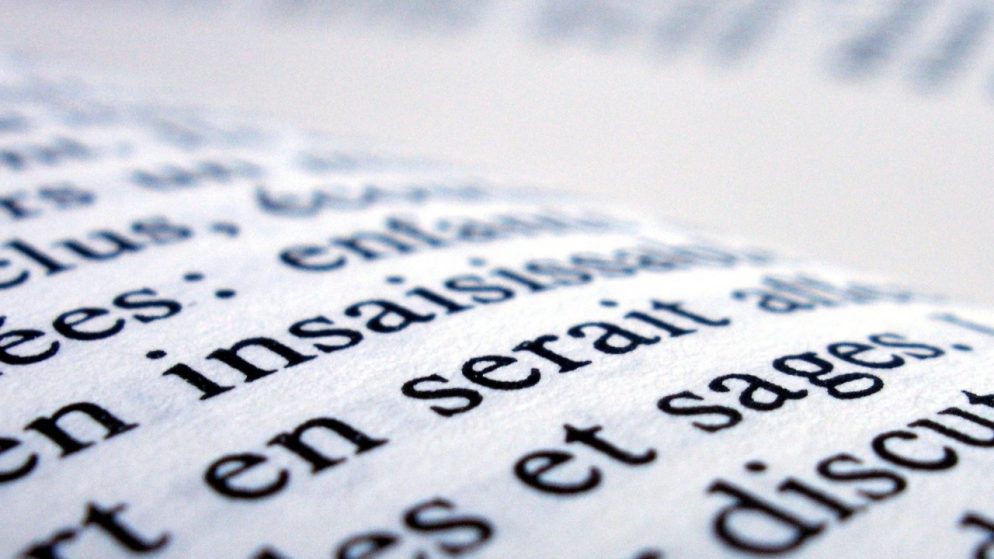How to start reading in French
Posted by Adam on 18th Oct 2019 in the blog in the tips category
"Lire, c'est boire et manger." (Victor Hugo)
Popular wisdom says that the best way to learn a language is to live in a country that speaks it, but for many of us that isn’t an option. What to do? Luckily there are still great ways to make progress in French without needing to take the dramatic step of moving abroad.
Ok. So you’ve been learning French for a little while, and now you’re getting a grasp on the grammar and starting to build up a vocabulary. Your Duolingo streak is fearsome and you’re making good headway with your lessons.
In that case I have a challenge for you — what about reading a book in French?
Reading is fundamental
If your insides just did a 360º, don’t worry, that’s a normal response! Charging into a native French environment where you don’t understand much (or most) of what is happening is a daunting prospect, like dropping yourself into the deep end of a pool before you’ve properly mastered the doggy paddle. But what you’ll gain is an ear for how the language should sound and feel when it’s written fluently, which will feed back into and improve your own French.
The big advantage with reading is that you can go ahead at your own pace. If the first page takes forty-five minutes, then that’s not a problem, and it can be surprising how much your reading speeds up throughout the book. Importantly, becoming used to not understanding every word is an invaluable skill. The most intimidating aspect of using the French you’ve learnt can be finding the confidence to just have a go, and reading is a great training ground for this.
Curious? Excellent. Here are some top tips for reading in French to get you started.
Pick a book you already know
Most popular books in English will be available in French translation. Starting with a book you know means you’ll have a roadmap for where the story’s going, so that if you lose the thread for a couple of sentences you can drop back in comfortably once you understand what’s happening again. Don’t shy away from kids’ or young adult books you enjoyed, as the language in these is often simpler and easier to understand — for example, the Harry Potter plot line is almost universally familiar and the writing style is learner-friendly too.
Take notes (but not too many)
Keep a notebook and a good French-English dictionary or app (preferably one that includes example phrases and colloquialisms) nearby to look up and note down new words you come across. If you’re not precious about the book, write notes in the margins. Remember though that the aim isn’t to make a vocabulary list or your own translation of the text into English. New words will become more familiar each time they pop up. You’ll also be building up a familiarity with sentence structures which will help you to guess word and phrase meanings as you’re going. Once you’re feeling more confident, try setting a limit for the number of words you can look up per page, to push yourself towards getting the meaning from context rather than a literal definition.
Be more tortoise (less hare)
No learner will be able to pick up a French book and understand everything at once. If something doesn’t make sense at all, make a quick note of it or simply move on. Working through a whole book is a long process, so just focus on enjoying reading a few pages at a time. Use your reading as a less structured, more osmotic learning process and try to get comfortable with only understanding a small proportion at first — after all, this is part of the point of the exercise!
Starting to read is a brilliant way to challenge yourself and get familiar with fluent French, and in no time you’ll be able to see the knowledge you’ve gained flowing back into other areas of your French learning. Why not keep an eye out for some idioms to try on your teacher or on your next trip to France?
Check out some of our other blog posts!
How France influenced Independence Day
Posted on by Josh in the french culture categoryDiscover the less known history of France's involvement in the American War for Independence
Read morePoisson d'avril
Posted on by Josh in the french culture, vocabulary categoryWhat happens on April Fools' Day in France?
Read moreHave fun learning French Today
People from all over the world enjoy learning French with Alexa Polidoro’s popular French audio and video lessons.






